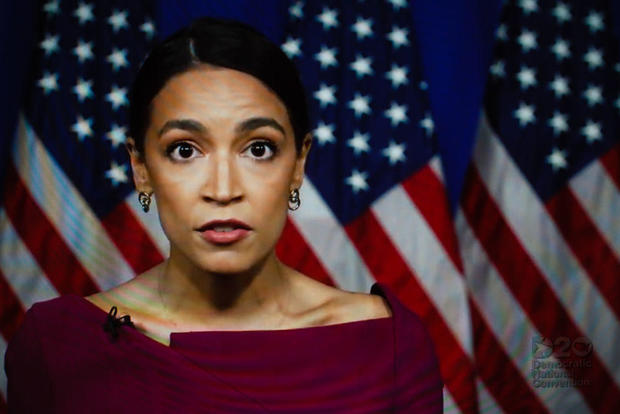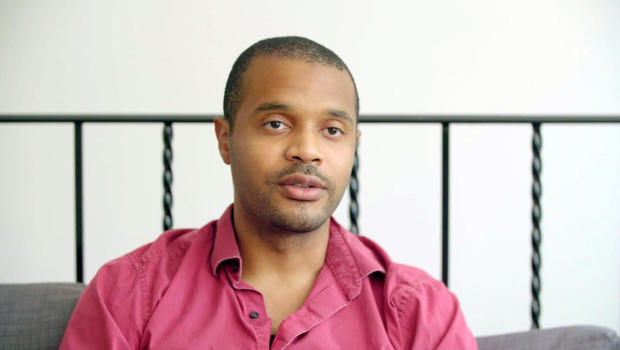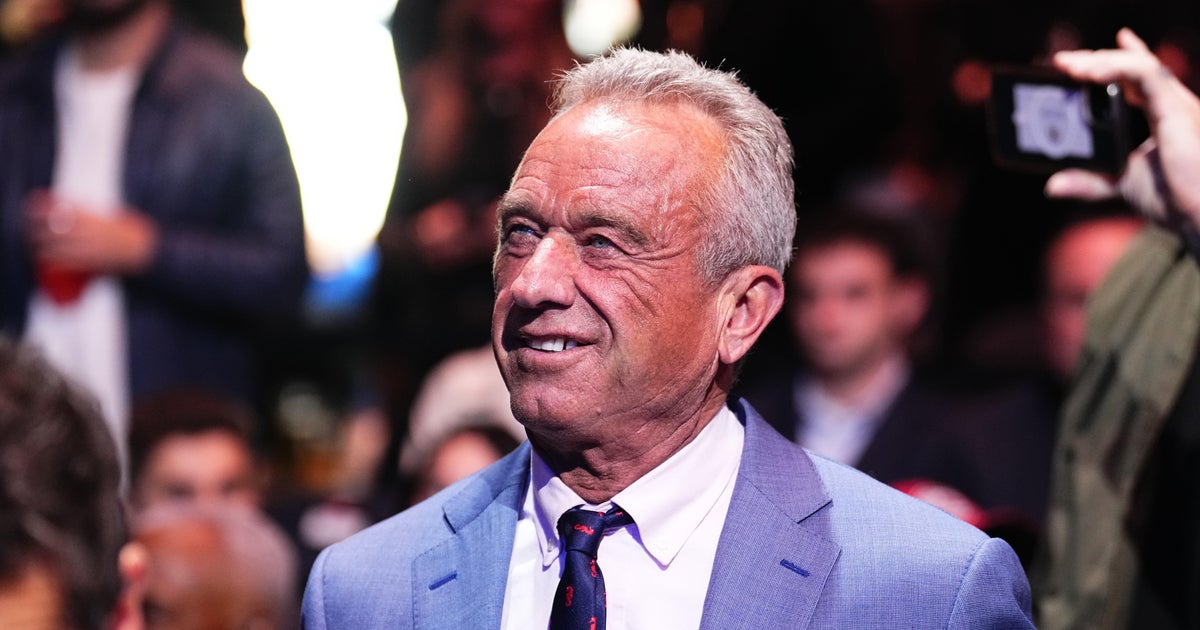What is socialism? And what do socialists really want in 2021?

Watch the CBS Reports documentary, “Speaking Frankly | Socialism,” in the video player above.
Just what is socialism? It was a buzzword in the 2020 election season, having sprung up dozens of times during campaign, particularly during the Republication National Convention. Conservative leaders depicted the idea as a democracy-killing bogeyman. Some Democrats — including Senator Bernie Sanders and Representatives Alexandria Ocasio-Cortez and Rashida Tlaib — have embraced the label with gusto.
The economic and political system has history going back centuries. Directly or otherwise, it has influenced government policies around the world, including in America.
But what exactly does socialism mean? What do socialists want right now? And is the Republican warning — that socialism is threatening to destroy the American way of life — a real concern? There are some facts about socialism that are beyond dispute.
This is socialism… and this isn’t
At its simplest, socialism calls for a nation’s citizens to control at least some of its means of production — the major ingredients needed for a healthy economy. Think infrastructure, energy, natural resources. Under socialism, any surplus or profit from those sectors must benefit those same citizens. Capitalism, meanwhile, calls for private owners to control the means of production and to keep any profit they make for themselves.
Many Americans see these two systems as opposites — and Republicans, in particular, tend to view it as an either-or situation. In a recent Pew Research Center survey, the majority of Republicans (68%) expressed a positive view of capitalism and a negative view of socialism.
But a substantial minority of voters hold a positive view of both systems — 25% of the overall group of Americans surveyed by Pew felt favorably about socialism as well as a capitalist economy.
The fact is, the two systems can, and do, coexist in many countries. Some governments blend socialist policies with capitalism and democratically elected leadership, a system usually called social democracy.
No socialists ran for president on a major-party ticket in 2020. President Joe Biden and Vice President Kamala Harris are not socialists. They are not members of the current socialist party, called Socialist Party USA, or of the nation’s biggest socialist organization, the Democratic Socialists of America (DSA), which has about 70,000 members nationwide.
Asked what he’d say to people who were worried about socialism, then-candidate Biden told Wisconsin station WLUK-TV: “I beat the socialists. That’s how I got elected. That’s how I got the nomination. Do I look like a socialist? Look at my career, my whole career. I am not a socialist.”
Overall, socialism accounts for a small percentage of America’s political makeup. Socialist Party USA had no members in any national or state office in 2020. But there has been some advancement at the state level; leaders supported by the DSA won control of Nevada’s Democratic Party organization in March 2021.
That said, only about half a dozen DSA members have held federal office over the years, all in the U.S. House of Representatives, including the current Congresswomen Ocasio-Cortez and Tlaib. Senator Sanders calls himself a democratic socialist and has been supported by the DSA, but he is not a known member and does not run under the Socialist Party.
Getty Images
Republicans have frequently used the terms “socialism” and “socialist” as a threat or insult when referring to progressive candidates who are not actually socialists.
What socialists want
There have always been different types of socialists — not to mention wildly varying ideas of what the “means of production” are, what role government should have, and where free enterprise might still fit in. Some socialists see “means of production” as all major industries, such as finance or energy.
For Jabari Brisport, a New York state senator elected in 2020, “What [socialism] means is that energy, housing, health care, education, finance, and transportation … shall be controlled publicly and not run by, for profit motive.”
CBS News
Other socialists have pushed for a total ban on private enterprise. Karl Marx, the Prussian intellectual who championed socialism in the 19th century, predicted that capitalism was doomed to fail, and a government-controlled economy would rise. Vladimir Lenin, whose Bolshevik revolution gave rise to the Soviet Union’s communist regime, preferred armed struggle to help push capitalism into history’s trash bin. That said: Socialism and communist ideology are not the same.
The new face of socialism
Today, the most prominent of America’s socialists are very different from the Marxists of the past. They largely push for progressive reforms within capitalism — a philosophy generally defined as social democracy.
The Democratic Socialists of America aims to blend socialism-inspired reforms with America’s current free-enterprise system. The DSA does not believe private enterprise should be immediately overthrown in favor of a government-run economy. Instead, Ocasio-Cortez, for example, has pushed for a “revolution of working people at the ballot box” — new laws and stronger unions to make private businesses more accountable to what DSA members see as public interests.
Bernie Sanders, meanwhile, also advocates for democratic socialism. He has advocated for universal free health care, canceling all student debt, and expanding Social Security benefits within America’s free-market economy.
The socialist bogeyman
The Republican Party made socialism — or more specifically, warnings about socialism — a part of its 2020 campaign messaging. During the 2020 Republican National Convention, one of the speakers, Senator Tim Scott of South Carolina, cast socialism as antithetical to the American Dream.
“If we let them, [Democrats] will turn our country into a socialist utopia, and history has taught us that path only leads to pain and misery, especially for hard-working people hoping to rise,” Scott said.
During his 2020 nomination acceptance speech, Mr. Trump echoed that warning, calling Joe Biden a “Trojan horse for socialism.”
Some of Mr. Biden’s policy proposals do call for big spending, such as his $2 trillion infrastructure plan. But he has also rejected ideas that are darlings of the DSA, such as the Green New Deal. (Former President Donald Trump, for his part, also pushed for mega-spending on areas that could be seen as means of production — including a $12 billion aid package for farmers.)
Opponents of socialism often point to Venezuela as a cautionary tale. Once ranked as the richest South American country thanks to its oil reserves, in 1998 Venezuela elected a socialist leader, Hugo Chávez. Chávez centralized power in his increasingly authoritarian grip and spent billions on social programs from profits on oil. Under Chávez’s successor, Nicolás Maduro, global oil prices plummeted and Venezuela’s petroleum-dependent economy collapsed.
“It’s just empty, empty shelves, all over,” says Venezuela-born Maria Fernanda Bello, a coalition director for Young Americans Against Socialism. “Socialists are always going to promise you free tuition, free health care, free everything, but they will never promise you freedom.”
But American socialists like Bernie Sanders reject the comparison.
“Let me be very clear: Anybody who does what Maduro does is a vicious tyrant,” Sanders said at a 2019 Democratic primary debate. “To equate what goes on in Venezuela to what I believe is extremely unfair.”
But is socialism American?
Some of America’s most popular policies have been linked with socialism since their inception, whether the label was earned or not. When Social Security was first proposed by President Franklin Delano Roosevelt in the midst of the Great Depression, a suspicious senator asked the secretary of labor whether it counted as socialism. When told it did not, the senator responded, “Isn’t this a teeny-weeny bit of socialism?”
American entrepreneurs have also taken advantage of programs that could be interpreted as socialism-lite.
Donald Trump’s father, Fred, got his start building Depression-era homes for New York families with the help of the Federal Housing Administration. The FHA insures home mortgages made by private lenders — essentially bringing some control over America’s finances under the power of its people, via the federal government. Later, Fred Trump turned to the FHA again, building agency-backed housing for military families. Donald Trump later inherited his father’s fortune, built in part by these projects.
World News || Latest News || U.S. News
Source link





